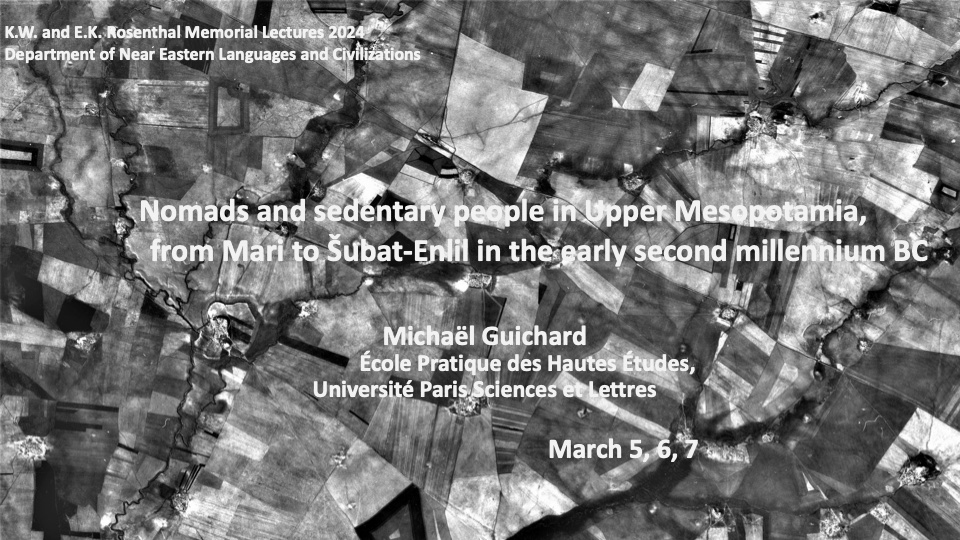K.W. & E.K. Rosenthal Lecture Series
Nomads and sedentary people in Upper Mesopotamia, from Mari to Šubat-Enlil in the early second millennium B.C.
Lectures by Michaël Guichard, École Pratique des Hautes Études & Université Paris Sciences et Lettres
Wednesday March 6 at 4 pm
“The Hana Simalites, Warriors and Pastoralists in the Middle Euphrates and Upper Habur Basin”
Location: HQ 276
The seasonal movements of the Simalite Hana from the kingdom of Mari to the outskirts of the anti-Taurus mountains, along the course of the Khabur, represented a fundamental aspect of the economy of the kingdom of Mari. The scattering of the Hana and their separation from the capital posed a challenge to the authorities in Mari, insofar as this group was difficult to control once it left the Euphrates valley, whereas it represented Mari’s main military force. The nomads’ life outside the boundaries of the Mari kingdom could thus have escaped the palace’s scrutiny. Fortunately, agents close to the king, who were also members of the Hanaean’s elite, organized and coordinated “seasonal migration” on behalf of the king of Mari. Their written accounts are numerous, but require a considerable effort to reconstruct, as each report gives only a small piece of the jigsaw. These figures are of great interest in their own right, as they embody the ambivalence of Mari society, whose elite, although perfectly acclimatized to urban and sedentary life, based their identity on pastoral values and lifestyle. We will attempt to synthesize the knowledge acquired so far, while integrating various new data on the mobile part of the Hana, in order to determine the extent and nature of their dispersion in Upper Jezira. The range of Hana herds extended beyond the kingdom of Mari into friendly tribal territories and the countries of “autonomous” cities, whether vassals of Mari or not. The interactions between the Hana and the inhabitants of Upper Jezira highlight an economic system that ideally rested on a balance of relations between them. In reality, however, this balance was fragile, dependent on the vagaries of nature and the complex, constantly changing geopolitical situation.
Sponsored by the K.W. & E.K. Rosenthal Memorial Lectures in Ancient and Near Eastern Civilizations
